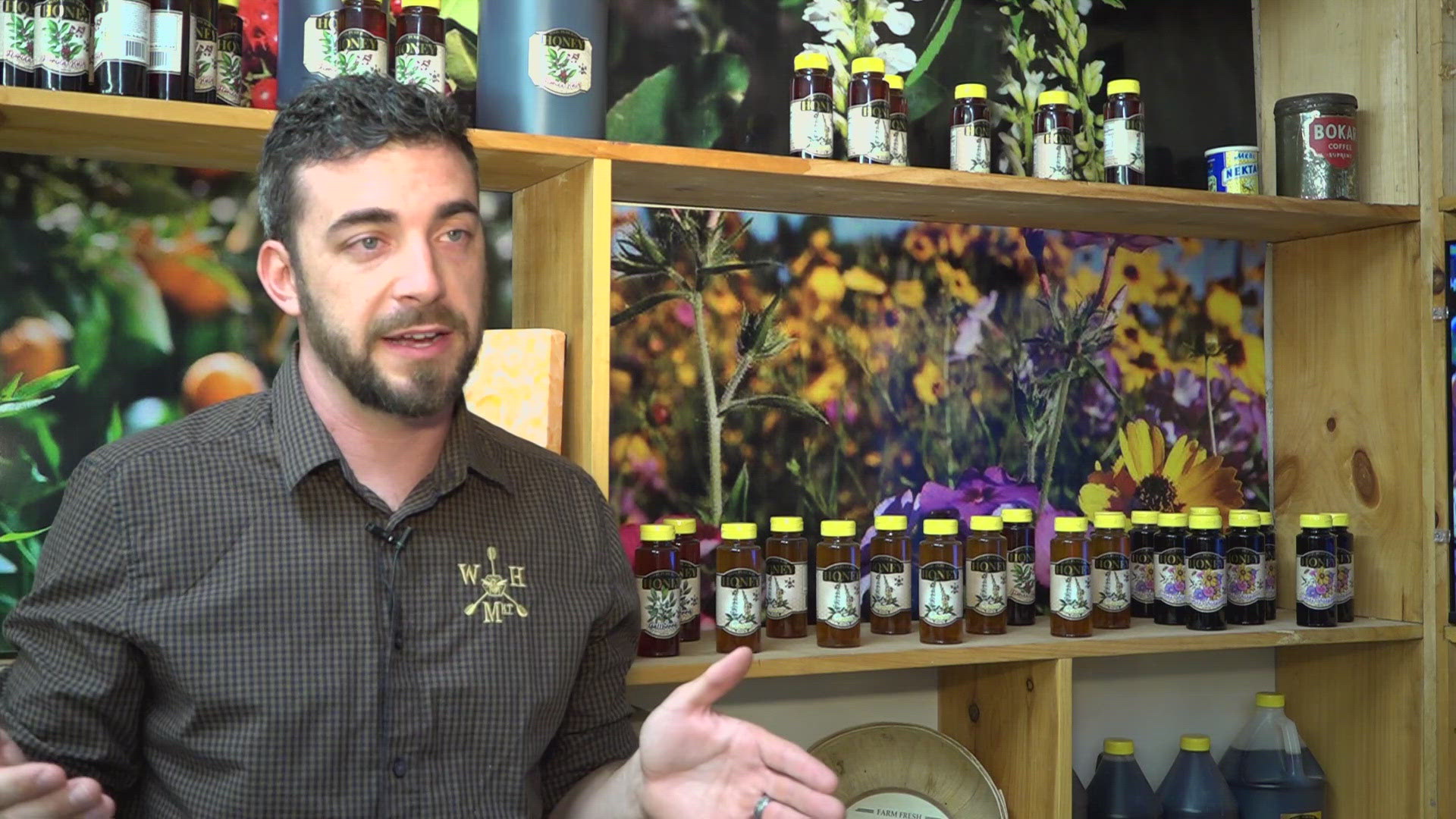SANDERSON, Fla. — This bottle of honey may look typical on the outside. But the honey on the inside was actually created by robotic beehives.
Founder of World Honey Market, John David Peterson, got his start in beekeeping at his school's FFA program and has seen the beekeeping methods transform right before his eyes.
“When I was in eighth grade, I convinced my dad that I wanted to buy some bees. So he let me just skip school and go over to High Springs and buy our first beehive. And that was how I got into bees,” Peterson said.
Beekeeping hasn’t changed since the 1970’s so this introduction of technology is a big game changer for the honey making industry.
“Traditionally, you have a box of, you know, just a wooden box, you know, with bees in it. And these new boxes have solar panels, battery banks and a robotic arm that actually moves the frames in and out of the colonies. So it has a lot of visibility for climate control within the colonies,” Peterson added.
Allowing beekeepers like Peterson to stay in the long game with the agricultural business world.
“If we don't have like sustainable ag practices, we can't feed the world. So lately we just was able to partner with a company that developed robotic beehives named Beewise. We're one of their early adopters in North America,” Peterson mentioned.
In just a year, Honey World Market are already seeing positives for both farmers and consumers with using the robotic bee hives.
“We can eliminate the need for or the exposure to pesticides because we can actually shut the doors on the hives and prevent them from getting into say fields that have pesticides in them. So these key features really give us the platform to produce sustainable, let's say, products and in the process,” said Peterson.
And that’s just only the beginning when it comes to the pros of utilizing robotic bee hives. Josh Blackman, Director of Operations for Beekeeping and Fundraising, explains how this prioritizes the health of the bees.
“Those enable us to take temperature to check for mites to do all the things that we can to keep the health of the bees in mind for a long term robotic hives,” Blackman said.
The biggest gain for farmers is that the new hives cut down on labor costs, allowing fresh honey to be more affordable and making farm raised products more accessible for everyone.
“It's gonna actually lower prices for a lot of people and consumers can afford more quality ingredients. We'll see though, I mean, we wanna definitely mitigate our colony losses. I think we're all aware there's a big problem with bees declining globally. This can, this could really help that,” Peterson explained.
It’s also opened other avenues for the World Honey Market, allowing their bees to travel all across the country to help with bee populations shrinking.
“We start here in Florida early in the year. January. Then February end up in California. Then from California back to North Florida and then from North Florida, somewhere in the Midwest, it's either gonna be North Dakota, South Dakota or Michigan. This last year, we actually bought a new farm in Michigan. So that's our new operating base out of the north,” added Peterson.
Pollinating and producing honey not only in Sanderson, but nationwide. World Honey Market plans to open a new storefront in Sanderson this December.

